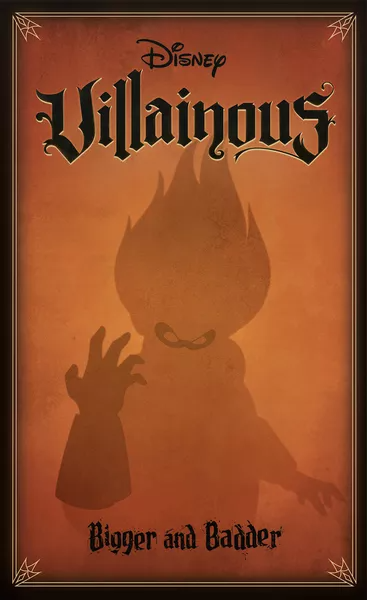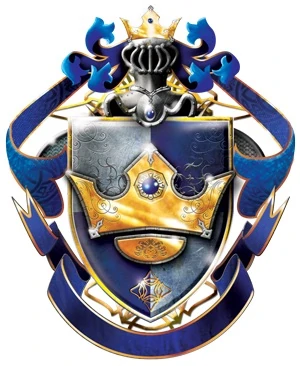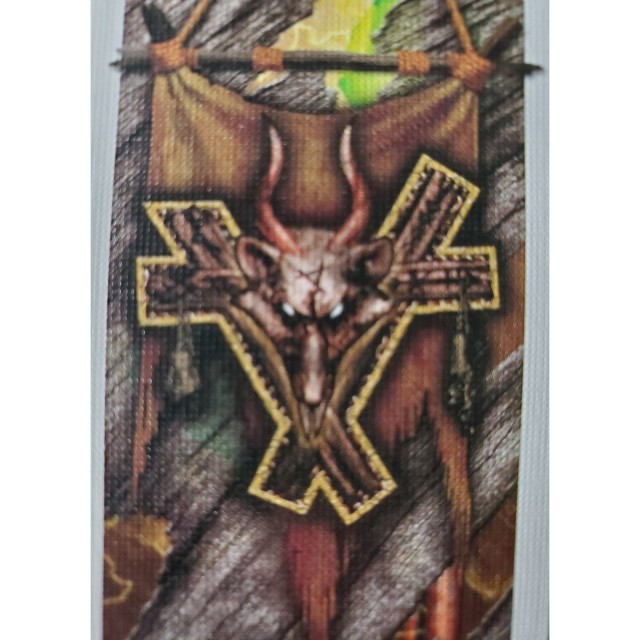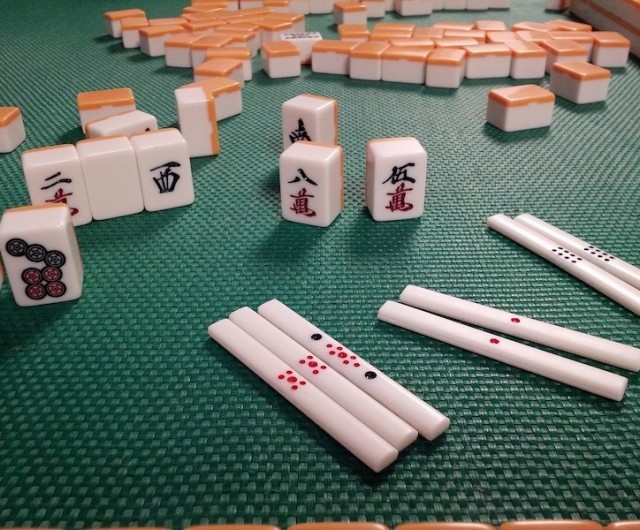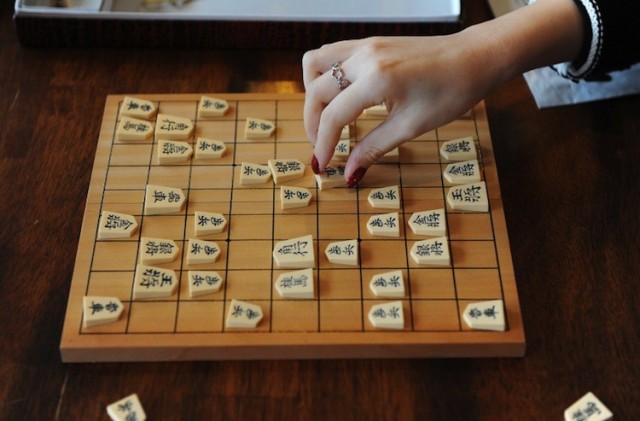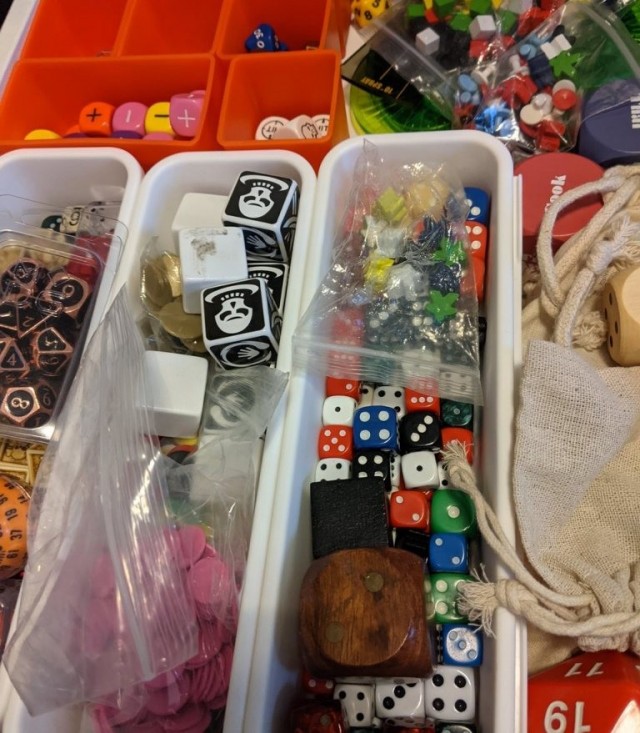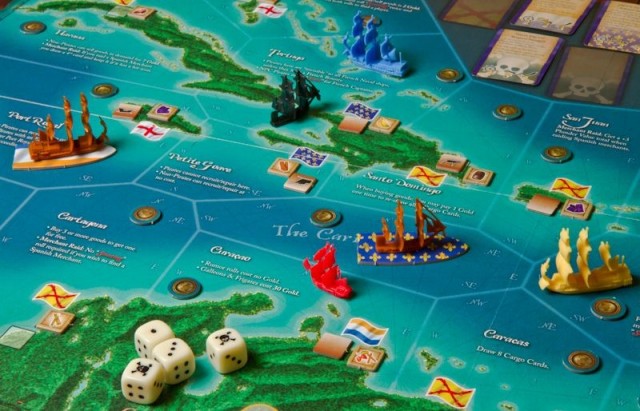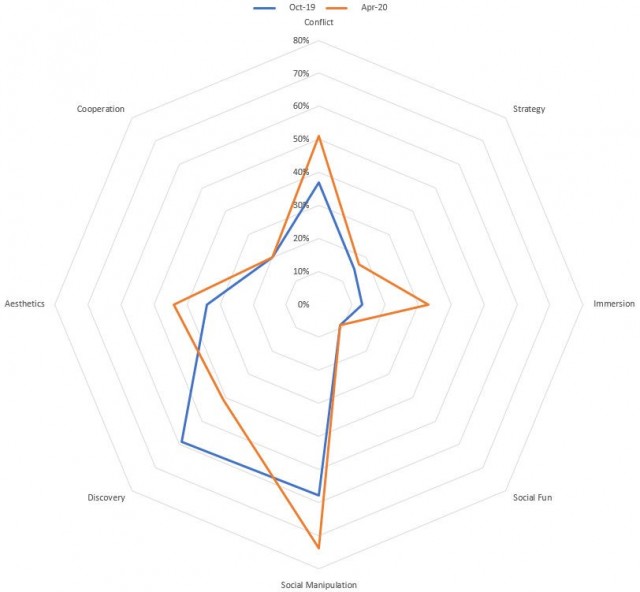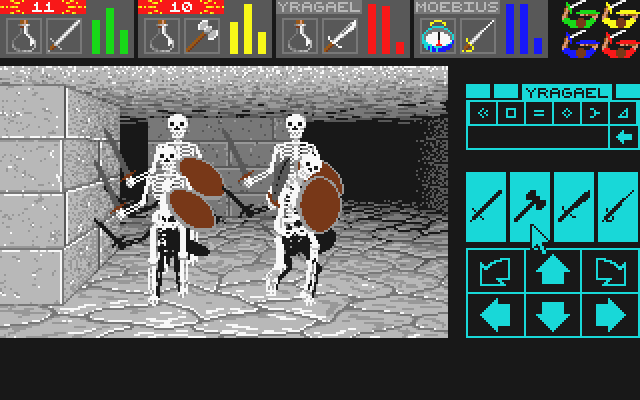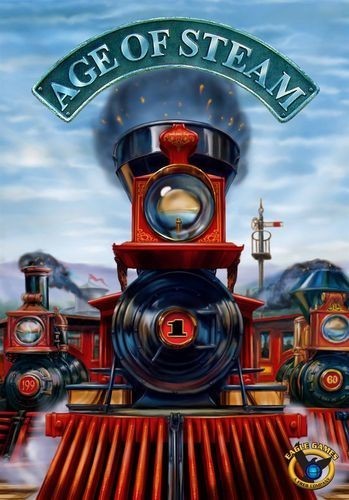 It seems to me that one thing we've traditionally lacked on this site is much in the way of commentary about Wargames, which is a bit strange considering that there's a big crossover crowd of people who like both AT games and Wargames. Indeed way back in the day when Robartin first coined the term "Ameritrash" there was some argument over whether Wargames ought to be considered a subset of a wider grand-Ameritrash tradition. Wasn't an argument I ever bought, but there we go. Anyway, I'm planning, over the next few weeks, to redress the balance with a short series of articles about Wargames and my take on the genre. This is the first.
It seems to me that one thing we've traditionally lacked on this site is much in the way of commentary about Wargames, which is a bit strange considering that there's a big crossover crowd of people who like both AT games and Wargames. Indeed way back in the day when Robartin first coined the term "Ameritrash" there was some argument over whether Wargames ought to be considered a subset of a wider grand-Ameritrash tradition. Wasn't an argument I ever bought, but there we go. Anyway, I'm planning, over the next few weeks, to redress the balance with a short series of articles about Wargames and my take on the genre. This is the first.
I have all the right innate stuff to be a Grognard. I play games, obviously. I also have an interest in, and read about, military history and theory. I reckon that's all the raw materials you need for entry into the ranks of the Old Moaners. To be sure I don't read a lot of history - apart from WWII there's no conflict on which I own more than one book - but that's just a matter of scale. But - until recently - I've not been inspired to even play, let alone own, a single Wargame. Why?
The answer is that I think that the concept of a Wargame "simulating" anything is a nonsense. Yet it seems to be of central concern to the majority of people who design, buy and play Wargames. But I don't really understand what it is that a wargame is supposed to be simulating. It certainly can't be the pressure of command or the experience of warfare since there's no way you can get that from pushing cardboard round a map, and it's highly debatable whether that's something you'd actually want to re-create. As to simulating the historical details of the combat that also seems a rather suspect goal - the success or failure of entire military operations can turn on the most minute circumstances of fate at levels which would require absurdly detailed levels of simulation to replicate. And yet it seems that this latter definition is exactly what a lot of wargamers seek to do, even though they realise the futility of the exercise as well as I do. The result is a trend toward games with ever more detailed and well researched maps, orders of battle and stupidly thick rulebooks crammed to the brim with irritating minutiae until you arrive at the "monster" wargames which have play times ranging into the weeks or months. I don't understand how people can really play these things - rules errors are common, and suddenly realising you've been playing advance after combat wrong several days into your latest re-creation of the Ardennes Offensive rather removes the point of the game. Since I fail to see the point of actually trying to achieve this sort of simulation on any level - since it's a mockery anyway - most wargames aim for a level of detail and complexity which puts me right off. I don't want to learn a thirty page rulebook if twenty of the pages are there purely to make the game more "realistic" when I don't much care about "realism" anyway.
So what is the point of a historical game? Why do I continue to be so interested in them, spending hours researching possible game purchases in a desperate attempt to try and find a historical game that has a level of detail low enough that I'm likely to play it? Obviously there must be something that keeps me - and the legions of "proper" Grognards interested in their hobby?
Well, of course there is. For starters, as someone who is really an AT gamer, no matter how much I might like to pretend otherwise, I buy games on theme alone. And I'm quite happy to buy what I call "faux-historical" themed games - games which are set quite clearly in a given period of history but which make little or no attempt to simulate the conditions of that period or, in some cases, which have ahistorical setup scenarios. There's a surprising amount of these around, if you look - Conquest of the Empire is a very good one and Memoir '44 arguably falls into this category as well. They deliver for me, but they won't deliver for a true Waqrgamer. So what else can we look for?
One thing a lot of Wargamers like to talk about his how they can learn history from their games. This seems like a perplexing claim to me - I own a copy of Napoleon's Triumph a game about the Battle of Austerlitz, the tactical details of which I know very little about. The historical notes which come with the game are interesting, but assume you know a lot about the battle before you play. I've never felt, playing the game, that I'm learning anything about the history of the battle, not that it stops it being a very interesting game. I have felt that I'm learning a bit about strategy and tactics in the age of Napoleonic warfare, but actual history, no. Indeed, much as I'd like it to be true, I don't see how you can learn much history from actually playing a game. If it were otherwise I'm sure school history classes across the globe would be full of kids who'd much rather play a game than read a book or be lectured at. You might get some from reading well-written accompanying historical notes in the game box, but the scope of these is limited in a lot of games. However, before I dismiss this completely I have to point out that there is one sub-genre of Wargame where you can learn history as you play, at least assuming the game is fairly well designed. I'm talking, of course, about card-driven games, where the cards represent actual historical events that occurred during the course of the campaign or war. You still need some good notes - either on the cards or in the rulebook - but by playing through the game you get a good sense of the pivotal events of that period and how the impacted on the unfolding conflict. The Cold War and the Punic Wars weren't periods I knew much about, but playing Twilight Struggle and Hannibal left me with a renewed understanding of, and interest in, the history of the eras the games depicted. It's a shame for me then that once I try We the People I'll pretty much have run out of CDGs which don't trip too far down the road of detail and simulation for my tastes.
The big thing that I look for in a satisfying wargame isn't so much a simulation as the ability to challenge the players with the same decisions and dilemmas that commanders in the historical situation had to deal with. Whether the resulting game has a tendency to play out along vaguely historical lines or not isn't particularly important to me, although it's a bonus. I've been surprised by how some quite detailed wargames don't actually manage to achieve this relatively modest goal, partly because they fall into their own straitjacket of being so simulation orientated that they cease to have much choice or pressure because they're too busy railroading the players into making accurate historical decisions, or ones that are widely discussed "what if" scenarios. I'm also surprised by the level of venom which some relatively simple wargames which do manage this get from the simulation-heavy crowd. Take A Victory Lost for example. It's primary concern is re-creating the broad strategic situation on the Eastern Front of WW2 after the battle of Stalingrad. The Soviets had numerical superiority but woefully lacked in troop quality. For the Germans, it was the opposite. As the German player in the game I'm faced with a series of dilemmas which mirror beautifully the problems faced by the historical commanders. I have to retreat my forces over difficult terrain without ceding too much ground and retaining enough good order to prevent a rout. I have to watch the Soviet line carefully, looking for points of overextension where I can counterattack to gain back territory and then plan and execute that attack accordingly. It's a balancing acts and it's hard, fun and largely accurate (although in my opinion the game does have other serious play issues) and it manages this off the back of a mere 12 pages of rules. Yet it's slated by some people because it doesn't always result in precisely historical areas of encirclement, or because the supply systems is ridiculously abstracted or because it doesn't focus on individual units in more detail. Is it any wonder that wargames often fail to reach out to a wider audience? It's only because games like AVL or Hammer of the Scots (8 pages) exist that I got into playing wargames in the first place. Grognards should be celebrating them as the primary points of entry for people new to the hobby!
The thing that I've learned to like about Wargames, from playing lighter weight titles, is what I've come to call the wind-up-and-watch factor. In the sorts of games I'm used to playing, you might come in with a grand plan but by turn 3 it's usually in pieces and although you're still making important tactic decisions you spend the rest of the game reacting to the positions of the other players. In a number of wargames the opposite is true - you have to come in with a strategy and once you've set it up and unleashed it onto the opponent there's very little you can do to stop it or change it - you can micromanage as best you can but for the most part you just roll with the punches and hope. To start with I found this immensely frustrating because it often means that a game is won or lost within the first few turns of what might be a long session but you can't spot it and start again. What taught me to appreciate that it can actually be quite a lot of fun was Target: Arnhem a game which hinges largely on the places the Allied player chooses to drop his paratroopers. The first time I played, it struck me that was very much like a puzzle, but not some crappy puzzle where you move lasers or robots around or insert numbers or letters into a grid, but a fun puzzle involving interesting history, "what if" scenarios, men with guns, and dice. I spent an indecent number of hours re-playing the game solo with my paratroopers coming down into different drop zones to fight the Germans, and the Germans themselves experimenting with different routes round the map edges to take out the paratroops as quickly as possible. It helped that I was able to imagine Band of Brothers every time I moved the 506th PIR and that I could pretend I was exonerating Monty from all his American naysayers every time I won. And it managed to hook me into all this fascinating gameplay and to explore all that interesting history off just two pages of rules. Truly, if ever there were a perfect introductory wargame, Target: Arnhem is it.
The games I've mentioned so far are all strategic level games - the smallest of them is Target: Arnhem and even then an individual counter of US paratroops represented several thousand men. The trouble is that I have a thirst for tactical games where am infantry counter might represent as few as a ten-man squad. It seems more .. well .. personal that way. But I have played hardly any games at this scale. The reason is because when you get down to this level, trying to manage even the modest goals of replicate I've discussed so far requires a level of detail which pushes the game into a complexity level that I'm not willing to accommodate. There is simply no way you can attempt to re-create an inch of the dilemmas and pressures of command without taking the time to worry about minutiae like fuel, ammunition, partial damage to vehicles and so on. You do get to take fussing over supply lines out of the equation but as both AVL and T:A demonstrate it's possible to abstract this to a very high degree and still get the "feeling" of history. Not so at the squad level. All the games I've investigated here which seem to me to have remotely sensible rules lengths are somehow unsatisfying - Combat Commander, for example, has no vehicles. There are other reasons why I've pretty much avoided tactical games so far, which we'll cover in a future article.
So what's to draw from all this? In making an argument against the value of "simulation" in a wargame, I'm not seeking to denigrate those who value and enjoy it, unless they're people who will actively criticise more accessible wargames in turn. Rather I'm trying to talk up the value of what's possible in the way of high-level simulation, history and above all strategic interest that you can get from relatively straightforward rules. The gap between the desire of the Wargaming community for simulation and the resulting complexity and play time is probably the reason so many wargames get played solo, or sit on the shelf collecting dust. Who wants to spend an hour setting up a game (it takes time to deploy all those counters) when you've only got another two hours of time left to actually play? If you can play for hours who wants to find six hours in that you've been playing an essential rule wrong? The answer to this dilemma - and the route through which I've discovered a lot of wargames - is PBEM. Sadly, however, the "wind-it-up" nature of the strategy in some of the games sadly makes them relatively poor candidates for PBEM play as the lengths of time involved just adds to the agony when you discover you've picked the wrong strategy.
So can we have more relatively quick and simple conflict simulations please? I think there's a market for them, not least amongst Grognards who want to play a game face-to-face now and again. And as a bonus, it's the route into the hobby for people who are perplexed by monster games with huge price tags like Devil's Cauldron. And to answer the question I came in with, am I really a Grognard? Well no, not really. No-one who's happy with a single game for any given conflict and shies away from games that have long rules or play times or even moderate counter densities really deserves the title. But that doesn't mean I'm not a wargamer - perhaps that's the distinction between the two terms. And I look forward to exploring some of the other titles I've discovered to my tastes with you over the coming weeks.
 Games
Games How to resolve AdBlock issue?
How to resolve AdBlock issue? 
